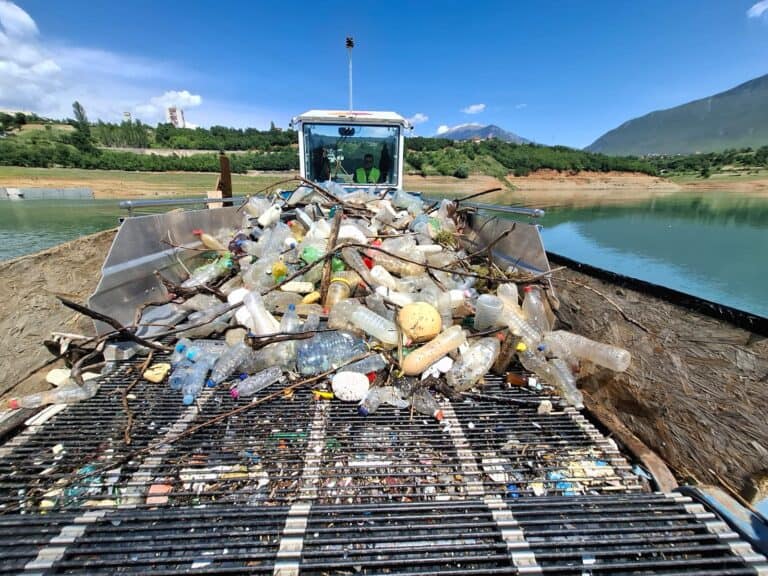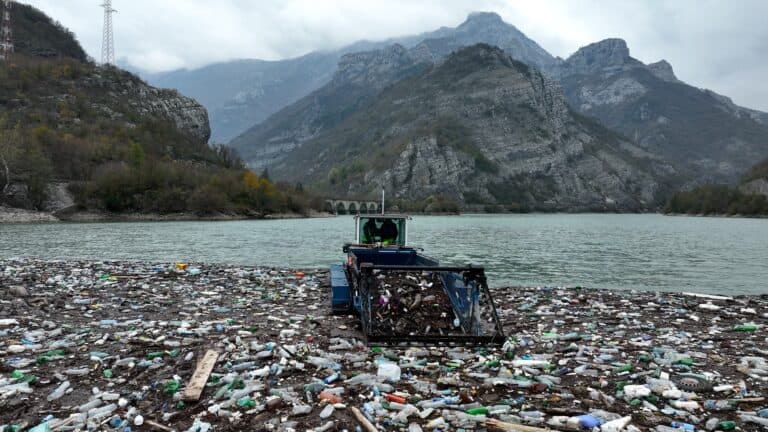Ocean Bound Plastic Standard
Every year, millions of tons of plastic waste end up in the ocean – and the source is usually on land. A good reason to start addressing the problem there.
Stop plastic before it reaches the ocean
12 million tons: that’s the estimated amount of plastic waste that ends up in the ocean every year – with devastating consequences for entire ecosystems. Around 80% of ocean plastic originates on land and is carried into the sea via rivers, riverbanks, or coastlines. This is exactly where the Ocean Bound Plastic Standard comes into play: the goal is to intercept plastic waste before it reaches the ocean.
The term Ocean Bound Plastic (OBP) refers to plastics that are highly likely to end up in the ocean if not collected and recycled beforehand. This includes both commercially recyclable and non-commercially recyclable plastics – with the latter making up the larger portion. The Ocean Bound Plastic Standard certifies companies and projects that are actively involved in collecting and recycling this plastic waste found in the environment.

This counts as Ocean Bound Plastic
Ocean Bound Plastic (OBP) is divided into the following four categories:
-
Potential OBP: inadequately collected plastic waste within a 50 km radius of the coastline
-
Waterways OBP: inadequately collected plastic waste found in rivers or within 200 meters of a river
-
Shoreline OBP: inadequately collected plastic waste within 200 meters of the coast
-
Fishing Material: used fishing gear and plastic bycatch

Ocean Bound Plastic at everwave
The Ocean Bound Plastic Standard and its corresponding certification help support targeted projects dedicated to removing plastic waste from the environment. The certification provides a scientifically grounded and transparently verifiable basis to ensure that collected plastic truly comes from high-risk zones. At everwave, this allows us to ensure that the waste we collect is removed from areas particularly vulnerable to ocean pollution.
With the Ocean Bound Plastic certification, everwave can transparently demonstrate how much plastic we’ve collected and where it comes from. This not only contributes to environmental protection but also provides our partners with a reliable foundation for their ESG reporting – since the Ocean Bound Plastic Standard offers a scientifically sound and transparently verifiable framework to confirm that the collected plastic truly originates from at-risk areas.
At everwave, we have already certified our project site in Phnom Penh, Cambodia, under the Ocean Bound Plastic Standard. Certification of our site in Albania is planned for the second half of 2025.
More information can be found here:
https://www.obpcert.org/


